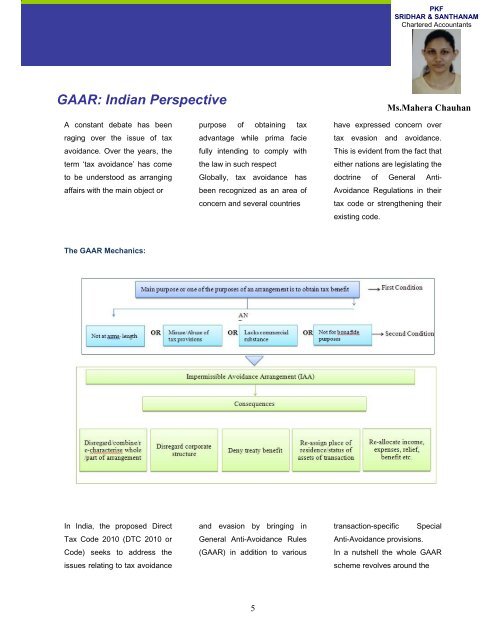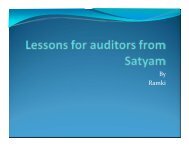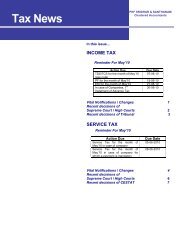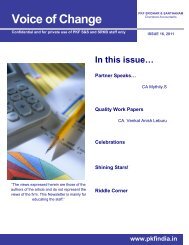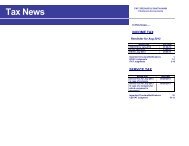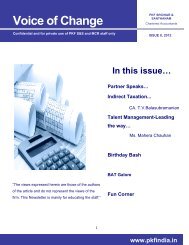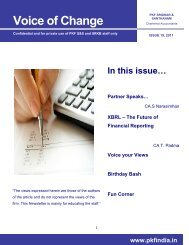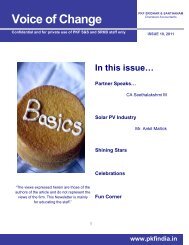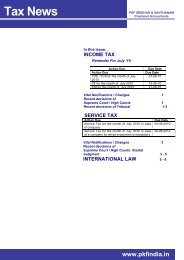Newsletter Issue No 7-15th July 2012 - PKF Sridhar & Santhanam
Newsletter Issue No 7-15th July 2012 - PKF Sridhar & Santhanam
Newsletter Issue No 7-15th July 2012 - PKF Sridhar & Santhanam
Create successful ePaper yourself
Turn your PDF publications into a flip-book with our unique Google optimized e-Paper software.
<strong>PKF</strong><br />
SRIDHAR & SANTHANAM<br />
Chartered Accountants<br />
GAAR: Indian Perspective<br />
Ms.Mahera Chauhan<br />
A constant debate has been<br />
raging over the issue of tax<br />
avoidance. Over the years, the<br />
term ‘tax avoidance’ has come<br />
to be understood as arranging<br />
affairs with the main object or<br />
purpose of obtaining tax<br />
advantage while prima facie<br />
fully intending to comply with<br />
the law in such respect<br />
Globally, tax avoidance has<br />
been recognized as an area of<br />
concern and several countries<br />
have expressed concern over<br />
tax evasion and avoidance.<br />
This is evident from the fact that<br />
either nations are legislating the<br />
doctrine of General Anti-<br />
Avoidance Regulations in their<br />
tax code or strengthening their<br />
existing code.<br />
The GAAR Mechanics:<br />
In India, the proposed Direct<br />
Tax Code 2010 (DTC 2010 or<br />
Code) seeks to address the<br />
issues relating to tax avoidance<br />
and evasion by bringing in<br />
General Anti-Avoidance Rules<br />
(GAAR) in addition to various<br />
transaction-specific Special<br />
Anti-Avoidance provisions.<br />
In a nutshell the whole GAAR<br />
scheme revolves around the<br />
5<br />
www.pkfindia.in


